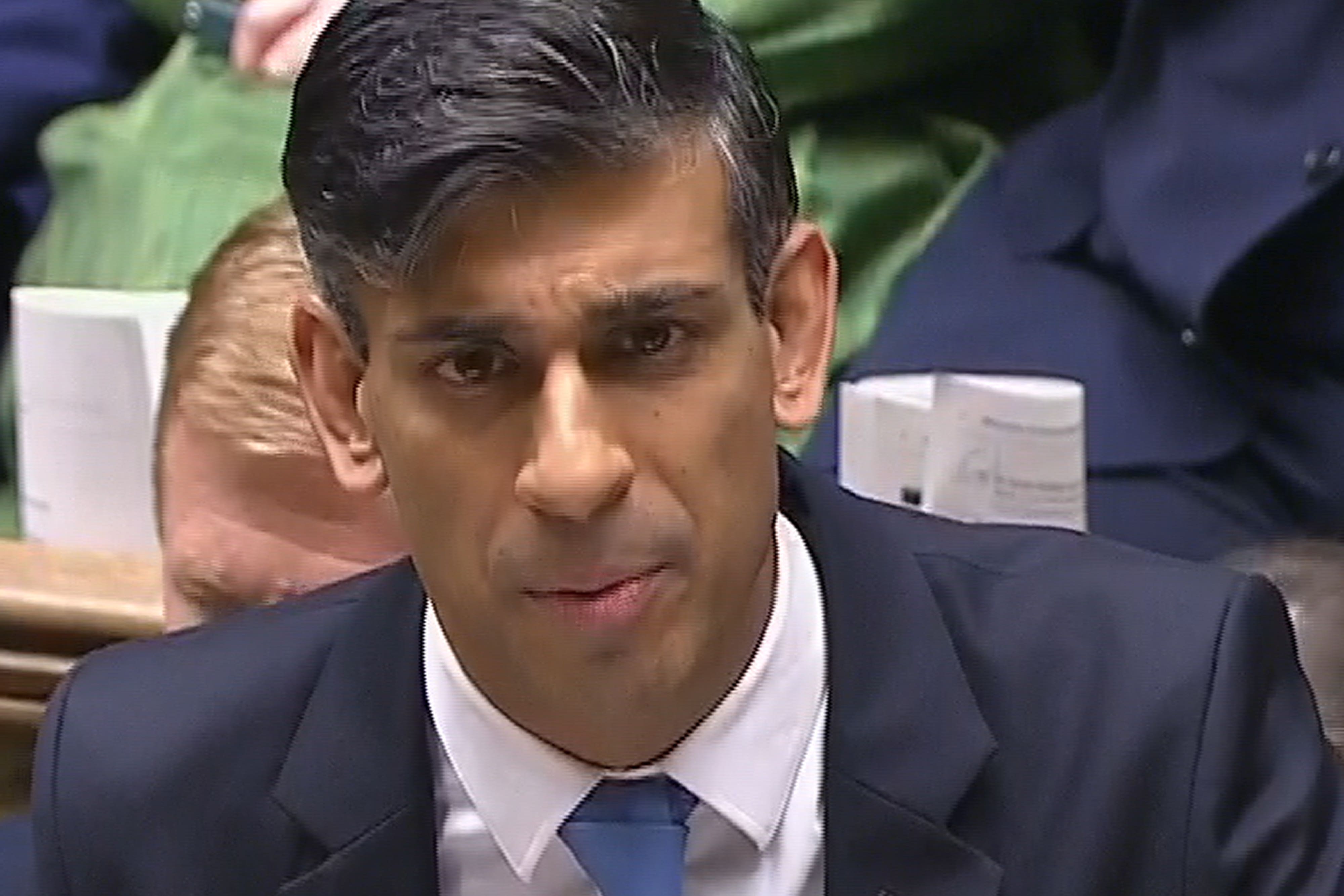Keir should get an ‘I Love Rwanda’ coffee cup – as he’s just given Rishi another roasting
It is a monument to the chaos that the prime minister inherited from his No 10 predecessors that a Conservative leader should be on the defensive at PMQs on the subject of immigration, writes John Rentoul


Who would have thought that the leader of the Labour Party would “win” Prime Minister’s Questions on the subject of immigration? Not once, but twice.
Someone should get Keir Starmer an “I Love Rwanda” coffee cup – as he’s just given Rishi Sunak another roasting.
At the end of November, Keir Starmer had his best-ever outing against Sunak, accusing him of having lost control of the borders, while he was “lost in La-La Land”. Today, Starmer repeatedly mocked the prime minister for not believing in his own Rwanda “gimmick” – and accused him of having lost control of the borders.
Sunak, who used to dominate the chamber, was reduced to defensive fumbling and reciting slogans in which his own side don’t believe.
Sunak’s weakness was the leak of a paper from when he was chancellor, in which No 10 said he didn’t believe the Rwanda policy would be a deterrent to people wanting to cross the Channel in small boats.
Starmer asked the question in an oblique way, which someone had written down for him, but which worked well. He spoke of an MP who had bravely told Boris Johnson that the Rwanda policy wouldn’t work, and asked innocently if Sunak knew “what happened to that MP”?
The prime minister’s answer was flat. “He refers to a document he hasn’t seen and I haven’t seen,” he said. Which is not a denial that he thought the policy wouldn’t work. He went on to say: “You do need effective deterrence.” Which is not a denial that he doubted that the Rwanda scheme would act as a deterrent.
Starmer’s attack worked because it was accurate. Sunak was a hugely capable chancellor of the exchequer who could see that the Rwanda policy was likely to be a waste of money. He could see the financial argument for the scheme, which is that, if it deterred people from attempting the Channel crossing, it would cost nothing, because there would be no one to remove to Kigali.
Which meant that the issue of deterrence was – and remains – crucial. But Sunak, when he was at the Treasury, plainly thought that deporting a few hundred asylum seekers to Rwanda would not deter the several thousands prepared to risk the crossing. Already willing to take the small but appreciable risk of death by drowning, migrants would presumably be willing to take a small additional risk that they might end up in Africa.
This allowed Starmer to pile ridicule upon scorn, knowing that Sunak couldn’t bridge the gap between what he believed then and what he advocates now. This allowed the Labour leader to build on the lesson according to Tony Blair on how to undermine your opponent. Blair said that he avoided insulting the Conservative leaders he was up against, because voters are not swayed by name-calling.
But Starmer showed that an insult that conveys an accurate attack can work. He called Sunak “Mr Nobody”, but only after establishing, to the satisfaction of both sides of the Commons, that the prime minister was only defending the policy because his MPs wouldn’t let him disown it. “He’s been taken hostage by his own party,” Starmer observed.
Sunak’s attempts to fight back were feeble. He quoted some ancient texts from the Labour leader’s Trotskyist youth to the effect that “he doesn’t actually believe in controlling immigration” at all. Starmer has plainly changed his mind rather more dramatically than the prime minister, but no one cares. To the extent that anyone is paying attention to policy detail, the voter will have noticed that Starmer’s trouncing of Sunak in November was on the issue of allowing foreign workers to undercut the British going rate – on which the government changed policy a few days later.
Even so, Starmer seemed to feel vulnerable to the charge Sunak made against him of not having a “single practical idea to stop the boats”. That is not quite true – Starmer and Yvette Cooper, the shadow home secretary, have a plan to negotiate a “returns” agreement with France – but it is true enough to suffice in the cut and thrust of the Commons. Yet Sunak blunted his counterattack by overclaiming: he alleged that Starmer “chooses the criminal gangs over the British people every time”.
That made no sense, but the leader of the opposition seemed spooked by it, starting two of his questions by protesting that he wanted to “smash the gangs”. It is rubbish, and he knows it – who doesn’t want to smash the gangs? – but it doesn’t matter, because it is the prime minister, as Starmer said, who has “failed”.
It is quite a monument to the chaos Sunak inherited from Boris Johnson that a Conservative leader should find himself on the defensive at Prime Minister’s Questions on the subject of immigration. Generally, it is not a good idea to “score” PMQs as if it were a game or a sixth-form debating competition. But Starmer won hands down today – and that tells us a lot about the state of British politics.






Join our commenting forum
Join thought-provoking conversations, follow other Independent readers and see their replies
Comments